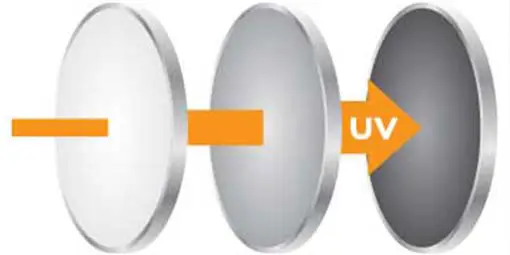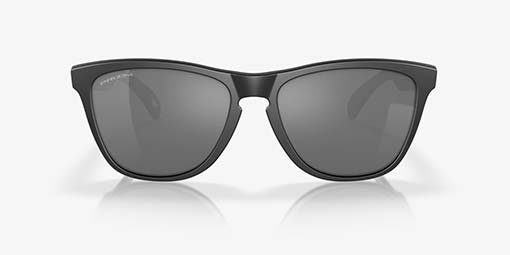The Benefits of Wearing Sunglasses
31-05-2025
UV/Environment Protection & Glare Reduction
Keep Your Eyes Protected Outdoors.
Sunglasses aren't just a fashion accessory — they’re essential for protecting your vision and promoting long-term eye health. Whether you're driving, walking outdoors, or spending a day at the beach, high-quality sunglasses offer a range of important benefits.1. Protection from Harmful UV Rays
Sunglasses Help Prevent Long-Term Eye Damage
The sun emits ultraviolet (UV) radiation that can cause irreversible harm to your eyes. Prolonged UV exposure has been linked to several eye conditions, including cataracts, macular degeneration, photokeratitis (sunburn of the eye), and even eye cancer. Wearing sunglasses with 100% UVA and UVB protection acts as a barrier, filtering out harmful rays before they can damage sensitive ocular tissues. Many people don’t realize that UV exposure is cumulative, meaning the damage builds up over time. That’s why it’s critical to wear protective sunglasses even on overcast days — UV rays can penetrate clouds. Children are particularly vulnerable, as their eye lenses are more transparent and absorb more UV light than adults. By consistently wearing sunglasses that meet high UV standards, you preserve your eye health and reduce the risk of age-related eye diseases. For maximum protection, choose wraparound styles or larger frames that cover more surface area.2. Reduce Glare and Improve Visual Comfort
Polarized Lenses Enhance Clarity and Reduce Eye Strain
One of the most immediate benefits of wearing sunglasses is the reduction of glare, especially in environments with reflective surfaces like water, snow, glass, or pavement. Glare can cause discomfort, squinting, and temporary vision impairment, making activities like driving or outdoor sports more difficult—and dangerous. Polarized sunglasses are particularly effective at cutting through harsh glare. These lenses contain a special filter that blocks horizontal light waves, allowing only vertical light to pass through. The result is crisper, clearer vision with enhanced contrast and less eye fatigue. Reducing glare not only improves comfort but also contributes to safer visual performance. Whether you’re navigating traffic or casting a fishing line, polarized lenses help you see more clearly and comfortably. Over time, less squinting means reduced facial strain and even fewer wrinkles around the eyes. If you spend long periods outside or work in high-glare environments, investing in a pair of polarized sunglasses can significantly enhance your quality of life.3. Prevent Eye Diseases and Degeneration
Sunglasses Reduce Risk of Cataracts and Macular Degeneration
Wearing sunglasses isn’t just about comfort—it's about preventing serious degenerative eye conditions. Cataracts, a clouding of the eye's natural lens, are often accelerated by UV exposure. According to the World Health Organization, up to 20% of cataract cases may be caused or worsened by excessive sun exposure. Similarly, age-related macular degeneration (AMD) — a leading cause of vision loss in older adults—has been linked to UV and high-energy visible (HEV) light exposure. By protecting the retina from light-induced oxidative stress, sunglasses help lower your risk of developing AMD later in life. Early prevention is key. Wearing protective eyewear from a young age significantly reduces cumulative exposure, slowing or preventing the onset of these chronic conditions. This is especially important for people with a family history of eye disease or who live at high altitudes, where UV intensity is stronger. Choose sunglasses labeled with “UV400” protection, which means they block wavelengths up to 400 nanometers—including both UVA and UVB rays. Consistent use of high-quality sunglasses is one of the simplest, yet most effective, strategies for preserving lifelong eye health.4. Protection Against Environmental Hazards
Sunglasses Shield Eyes from Wind, Dust, and Debris
Beyond UV and light protection, sunglasses offer a physical barrier against environmental irritants. Wind, dust, pollen, sand, and airborne debris can all irritate or damage the surface of your eyes, particularly when you're biking, hiking, or working outdoors. Chronic exposure to environmental irritants can lead to dry eye syndrome, redness, inflammation, or even abrasions on the cornea. Sunglasses with wraparound frames or snug side coverage help minimize exposure to these elements, keeping your eyes comfortable and hydrated. This protection is especially beneficial for people who wear contact lenses. Lenses can trap irritants against the eye’s surface, compounding discomfort or leading to infections. By wearing sunglasses, you create a buffer zone that reduces your exposure and improves lens-wearing comfort. For outdoor workers, allergy sufferers, or people living in windy or dusty climates, sunglasses aren’t just helpful—they’re essential for daily comfort and safety.5. Prevent Headaches and Migraines
Sunglasses Help Manage Light Sensitivity (Photophobia)
For people who suffer from photophobia (light sensitivity), bright sunlight can trigger debilitating symptoms, including migraines, eye pain, and nausea. Even short exposure to bright light can set off a headache, especially in individuals who are already prone to migraines. Sunglasses provide a protective filter that helps manage light intake and reduce the frequency and severity of light-induced headaches. Tinted lenses, such as gray or amber, can be especially effective at minimizing brightness without distorting color perception. Some people may also benefit from FL-41 lenses, a special tint designed to reduce light sensitivity and migraines. While these are not traditional sunglasses, combining FL-41 filters with UV-blocking sunglasses can deliver dual benefits. If bright light is a consistent trigger for your headaches, sunglasses should be a part of your daily toolkit. Keep a pair on hand during commutes, walks, or anytime you’re outdoors—your eyes (and brain) will thank you.Personalized Prescription Sunglasses in Edmonton
Visit Our North Edmonton Optical
At Eye-deology Vision Care in Edmonton, we offer a wide range of UV-protective and polarized sunglasses for adults and children alike. Our expert optometrists help you choose the right lenses for your lifestyle, vision needs, and prescription—whether you’re shielding against glare, managing dry eyes, or simply want to protect your eyes year-round. Schedule An AppointmentFYEyes Blog Posts

Photochromic Lenses: Pros and Cons
Photochromic lenses are 2-in-1 solution with several pros and cons.

Transitions vs. Transitions XtrActive Lenses
Understand the difference between Transitions and XtrActive lenses.

Polarized Sunglasses
Looking to minimize glare and reduce eye strain? Polarized sunglasses may be for you.

Photokeratitis
Protecting your body from the sun is important. Your eyes are no exception.
Frequently Asked Questions
The main benefits of wearing sunglasses are: UV protection, Glare Reduction / Visual Comfort, Eye Disease Prevention, Environmental Protection, and Headache/Migraine Prevention.
Eyelid cancer is a relatively common skin cancer, accounting for about 10% of all skin cancers. Basal cell carcinoma (BCC) is the most frequent type, followed by squamous cell carcinoma (SCC). While eyelid cancers are seldom fatal, they can cause significant tissue damage and potentially spread to other areas.
